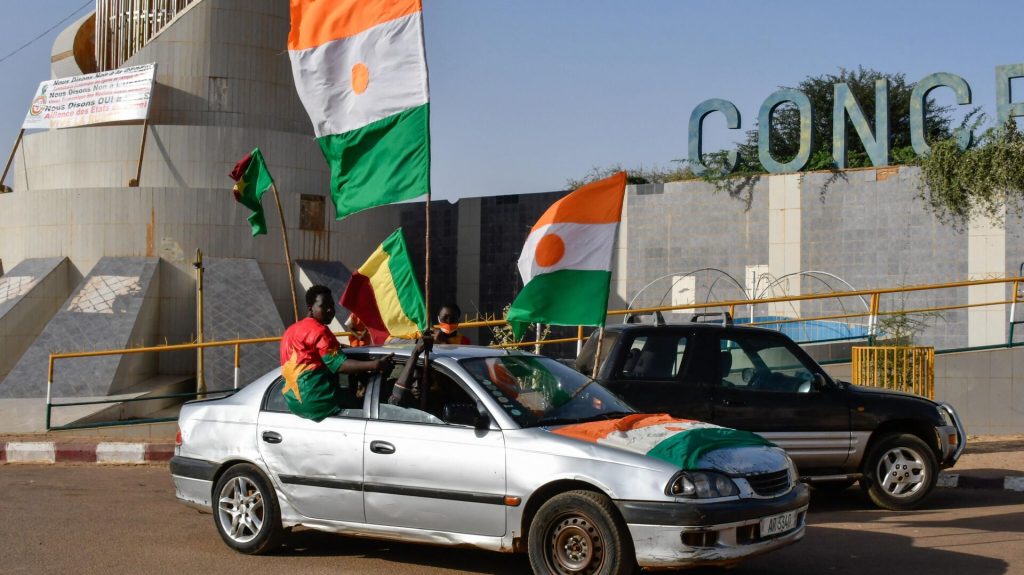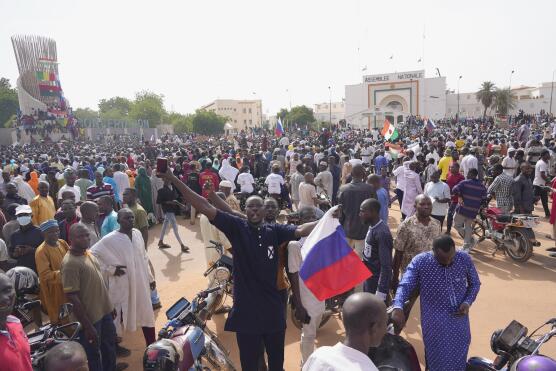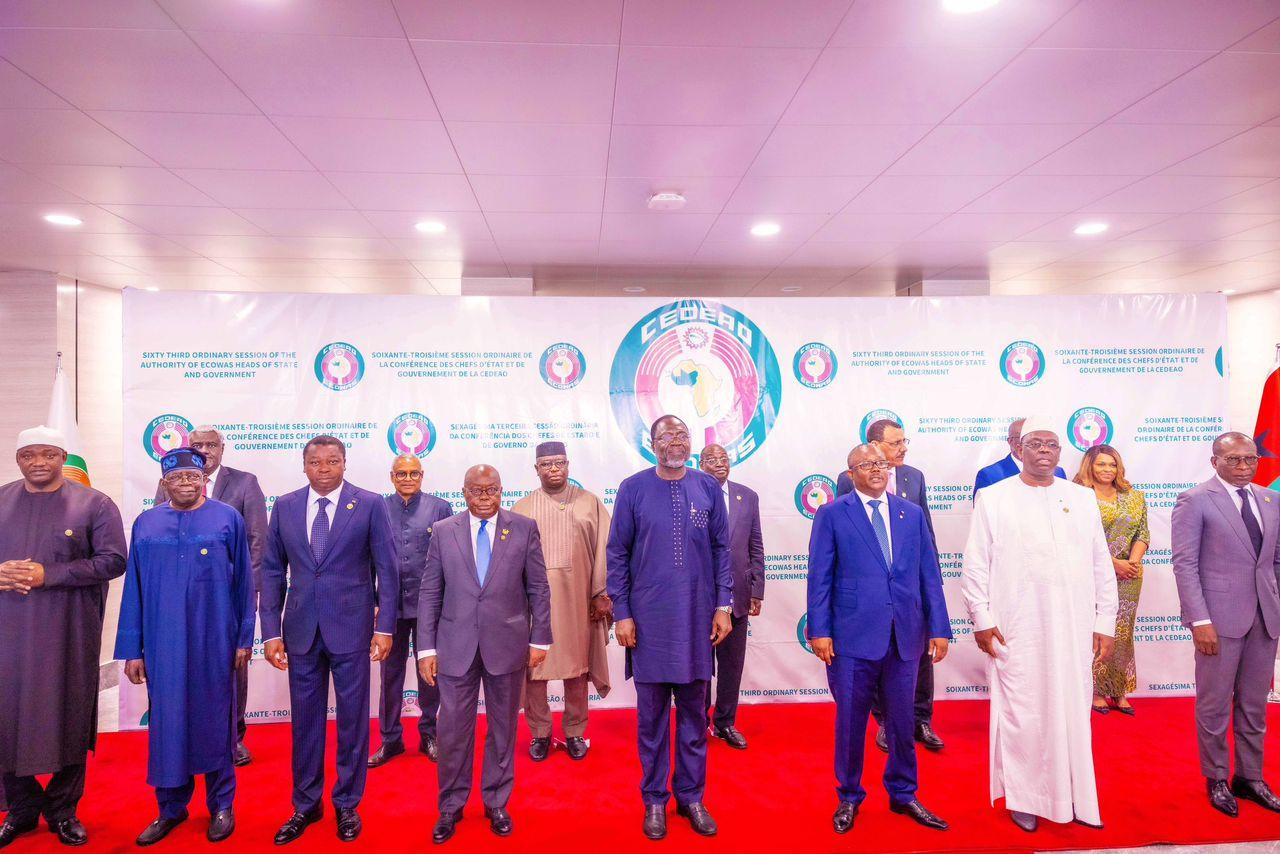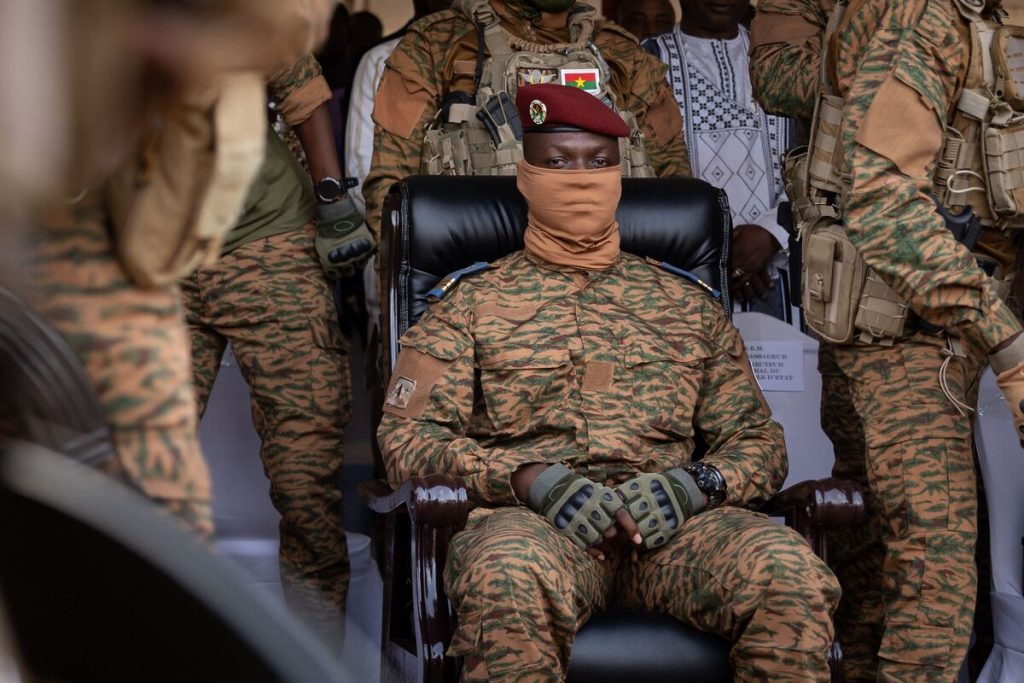The West African countries of Niger, Mali, and Burkina Faso on Sunday announced that they were withdrawing from the sub-regional bloc, ECOWAS.
They said this was due to illegal and inhumane sanctions imposed on them following the coups in their countries.
The three countries also notified ECOWAS, the African Union, A.U., and the United Nations of their withdrawal from the bloc. They said that ECOWAS has moved away from its founding principles and was being influenced by foreign powers.
Military leaders of the three nations disclosed in a joint statement on Sunday that it was a “sovereign decision” to leave the Economic Community of West African States, ECOWAS, “without delay”.

There are concerns from political watchers that the withdrawal of Mali, Niger Republic, and Burkina Faso from the Economic Community of West African States has serious economic and security implications.
Trade worth about $150 billion flows within the subregion annually. Niger shares 1,500 km of border with Nigeria and does 80 percent of its trade with the country. There are also questions over millions of nationals the bloc allowed visa-free travel and the right to work.
Experts are concerned with inferences from Western powers, especially the United States of America, USA, and Russia, with a huge presence of Africa Corps, the former Wagner security forces in the region.
The three countries were suspended from ECOWAS, with Niger and Mali facing heavy sanctions following the military take-over of power that took place in Mali (2020 and 2021) Burkina Faso (2022), and Niger (2023).
They also accused the regional body of failing to help them kick out the jihadists who swept into Mali in 2012 and then on to Burkina Faso and Niger.
The jihadist groups have continued to plague their territory despite Western military support.
The military regimes mounted pressure on former colonial masters France, forcing them to remove their ambassadors and troops. Russia swiftly filled the void militarily and politically.

The French army’s withdrawal from the Sahel has also raised concerns over the conflicts spreading southward to Ghana, Togo, Benin Ivory Coast, and Nigeria.
New Military Alliance
The three countries have gone ahead to strengthen their alliance. After Mali a year ago, Niger and Burkina Faso announced on December 1, 2023, their decision to leave the G5 Sahel group, a group for political and military cooperation with Chad and Mauritania created with the nod of France in 2014 to fight jihadist groups. They said the alliance served foreign interests. They created the Alliance of Sahel States (AES) in September 2023 after facing the threat of military action by ECOWAS to sack the junta in Niger.
Many believe that military rule may abort ongoing peace moves and boost terrorist groups in the Sahel region.

However, some stakeholders believe Nigeria and ECOWAS will be big losers in the matter.
A former Nigerian Minister of Foreign Affairs, Bolaji Akinyemi, said that the ECOWAS has turned into a battlefield between Russia and the USA.
Akinyemi said that the decision of the three countries is worrisome for ECOWAS.
He said, “We have a crisis at hand, and I call it a crisis because, in terms of landmass, that’s about half of ECOWAS, so we’re not dealing with just a little hiccup on our hands.
“ECOWAS is being turned into a confrontational field between Russia and the USA. The fact that this statement came just after U.S. Secretary of State Anthony Blinken left Nigeria is significant, and we should pay attention to it.
“Another issue is that Guinea has a military regime, but the country is not going along with these three, whether in their alliance or kicking out the French.
“They said they’re leaving immediately; however, ECOWAS protocol says one year, and you carry out all your responsibilities during that one year. With their decision to leave immediately, will you force them to stay or use the confusing situation to try to bring palliative into it?”
Akinyemi noted that Nigeria has a role to play and must call on Russia to stop its intervention in the West African bloc.
“There must be a role for Nigeria. Nigeria does not have a hostile relationship with Russia. Therefore, there should be some tough talk between the foreign ministry and the Russian embassy.
“Nigeria, which shares a common border with Niger, does not want a topsy-turvy diplomatic situation.
“We don’t want to be victims of the confrontation going on between Russia and NATO, and we see the hand of Russia in these people leaving, and we’re going to hold Russia responsible for bringing them back.
“I don’t believe that what is happening is going to be solved easily because we now have this confrontation between Russia and the Western countries and NATO. We should have that at the back of our minds,” he added.
Also, many have decried the inability of the Authority of Heads of State and Government of the West African Community to resolve the crisis, while others have exonerated him.
The 15-nation bloc of ECOWAS is currently led by Nigeria’s President Bola Tinubu.

ECOWAS was formed in 1975 to promote economic integration in member states. But it has struggled in recent years to halt coups in the region where the people have complained of not benefitting from rich natural resources.
A former Nigerian lawmaker, Senator Shehu Sani, described Mali, Niger, and Burkina Faso’s exit from ECOWAS as a severe setback to West Africa. He said that the move points to the failure of diplomacy and dialogue.
“The Withdrawal of Mali, Niger Republic, and Burkina Faso from Ecowas is a setback for West Africa.
“It signifies the failure of diplomacy and dialogue. We lost our African blood brothers because of our Western conditional friends.
“We sacrificed our hands to keep our wristwatches,” Sani wrote on his X handle.


